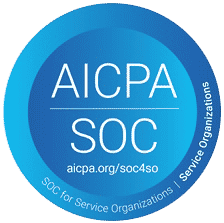Shift-based work environments must manage constant, unpredictable changes—call outs, swapped shifts, and production demand fluctuations, to name a few—while adhering to complex regulatory requirements. Ensuring that your workforce is equipped with the necessary skills, competencies, and qualifications to keep up with last-minute adjustments is crucial.
And they’re not all the same thing.
- Skills: Practical abilities developed through training and experience.
- Competencies: A combination of skills, knowledge, and behaviors for effective role performance.
- Qualifications: Formal credentials proving an individual meets industry standards or regulatory requirements.
Matching employees to tasks based on their skills, competencies, and qualifications, at the point of scheduling, is essential for maintaining operational efficiency, workplace safety, and regulatory compliance. Workers without the right knowledge (or in some cases, required certification) can pose risks, potentially causing costly delays or even accidents. Proper management of skills and qualifications ensures that tasks are completed accurately and efficiently, protecting both your organization and its workforce.
Aligning Workforce Competencies With Business Needs
Ensuring your employees have the right combination of skills, competencies, and qualifications is not just a nice to have; it’s an operational necessity. In fact, a 22% reduction in productivity occurs when employees lack the right skills for their jobs, according to McKinsey. By aligning each employee’s abilities with business needs, organizations can maintain continuity, boost productivity, and stay compliant with industry standards.
Let’s explore how this alignment impacts critical areas of your operations.
Meeting Operational Requirements
A key aspect of workforce management is ensuring that the right employees are scheduled for the right tasks at the right time. By scheduling employees based on their skills, competencies, and qualifications, organizations can prevent costly disruptions to business continuity. When an unqualified employee is assigned to a task they’re not equipped for, it can result in errors, missed deadlines, or even operational shutdowns that halt productivity.
For example, in industries like food processing or nuclear energy, even one lapse in qualification tracking can lead to operational chaos, forcing facilities to pause production or fail critical safety audits. Ensuring that employees with the correct certifications and skills are in place maintains smooth operations and reduces the risk of unexpected downtime.
Efficiency and Productivity
Placing workers in roles that match their specific capabilities directly influences overall efficiency and productivity. Employees who are highly skilled in their roles are not only able to complete tasks faster but also more accurately. When workers are scheduled based on their skill sets, it minimizes the need for additional supervision, reduces mistakes, and enhances workflow efficiency.
Consider manufacturing, where using an unqualified employee to operate complex machinery can lead to operational slowdowns, product defects, or even machine damage. Proper scheduling ensures that the most qualified employees are available, improving productivity and helping the business meet production goals on time and within budget.
Compliance and Safety
Regardless of the industry, maintaining regulatory compliance and ensuring employee safety are paramount. Certifications and qualifications are often required by law or industry standards, and failure to schedule employees with the proper credentials can result in hefty fines, legal issues, or accidents.
Industries such as oil, gas, and chemical must adhere to strict safety regulations. Without scheduling employees who have HAZMAT or other safety certifications, organizations risk exposing workers to hazardous conditions. Likewise, regulatory agencies may conduct audits, and failure to prove that your workforce meets qualification requirements can lead to costly penalties. Scheduling employees based on their certifications helps ensure not only the safety of the workforce but also the company’s adherence to laws and regulations.

Automating Skills, Competencies & Qualification Management
When these processes are handled manually, they become time-consuming, error-prone, and difficult to track. Even minor oversights in certification management can lead to significant risks, including non-compliance, operational delays, and increased liability.
The Challenges of Manual Management
In many organizations, skills and certification tracking is still done manually—through spreadsheets, outdated databases, or paperwork. This manual approach can lead to several challenges, especially when employee qualifications need constant monitoring and updates:
- Complexity and Volume: Managing a large workforce across multiple locations, each with different certifications and skill requirements, creates enormous complexity. Employees need different qualifications based on their roles, and certifications often have varying expiration dates, requiring regular renewal and tracking.
- Increased Risk of Human Error: Manual processes are highly prone to errors. A missed certification update or expired license can have serious repercussions, including safety hazards, compliance violations, and operational downtime.
- Difficulty in Scaling: As organizations grow, manually tracking qualifications becomes unsustainable. With hundreds or thousands of employees, it becomes increasingly difficult to ensure that all certifications are up to date, which can put organizations at risk during audits or inspections.
- Inefficient Scheduling: Without automated systems, managers may not have easy access to real-time data on employee qualifications. This can lead to inefficient scheduling, where unqualified workers are placed in roles they aren’t certified for, resulting in delays or costly mistakes.
The Benefits of Automation
Automating skills, competencies, and qualification management addresses these challenges head-on:
- Ensures Compliance: Automated systems allow organizations to easily track employee certifications and receive real-time alerts when qualifications are nearing expiration. This ensures compliance with industry standards and regulations, reducing the risk of legal repercussions, fines, or safety violations.
- Reduces Human Error: Automation eliminates the risk of human error by keeping all qualification data up to date and easily accessible. By centralizing records and automatically tracking certifications, organizations can ensure that no employee is scheduled for a role they aren’t qualified for.
- Improves Scheduling Efficiency: With real-time data on employee skills and qualifications, managers can make smarter scheduling decisions. Automation ensures that only qualified personnel are placed in critical roles, optimizing productivity while reducing the risk of downtime or costly errors.
- Scalability: As organizations expand, automated systems can scale alongside them. Whether managing certifications for a team of 50 or 5,000, automation provides a streamlined, efficient way to ensure that every employee meets the necessary standards without adding administrative overhead.
By automating the management of skills, competencies, and qualifications, organizations can improve their scheduling accuracy, ensure compliance, and reduce the administrative burden on managers. This not only enhances operational efficiency but also helps mitigate risks in industries where compliance and safety are paramount.

How Indeavor Can Help
Indeavor’s workforce management platform offers a seamless solution for automating the management of skills, competencies, and qualifications. By centralizing employee capabilities and integrating with systems that track (and upskill) them in real time, Indeavor ensures that organizations can easily maintain compliance with industry regulations and safety standards. The platform automatically alerts managers when certifications are nearing expiration, eliminating the risk of human error and ensuring that no unqualified workers are assigned to critical tasks.
At the point of scheduling, the platform takes into account each employee’s skills, competencies, and qualifications, ensuring that only qualified personnel are placed in roles that require specific skills or credentials. This not only improves scheduling efficiency but also mitigates risks, reduces operational downtime, and keeps your organization compliant with legal and safety requirements.







